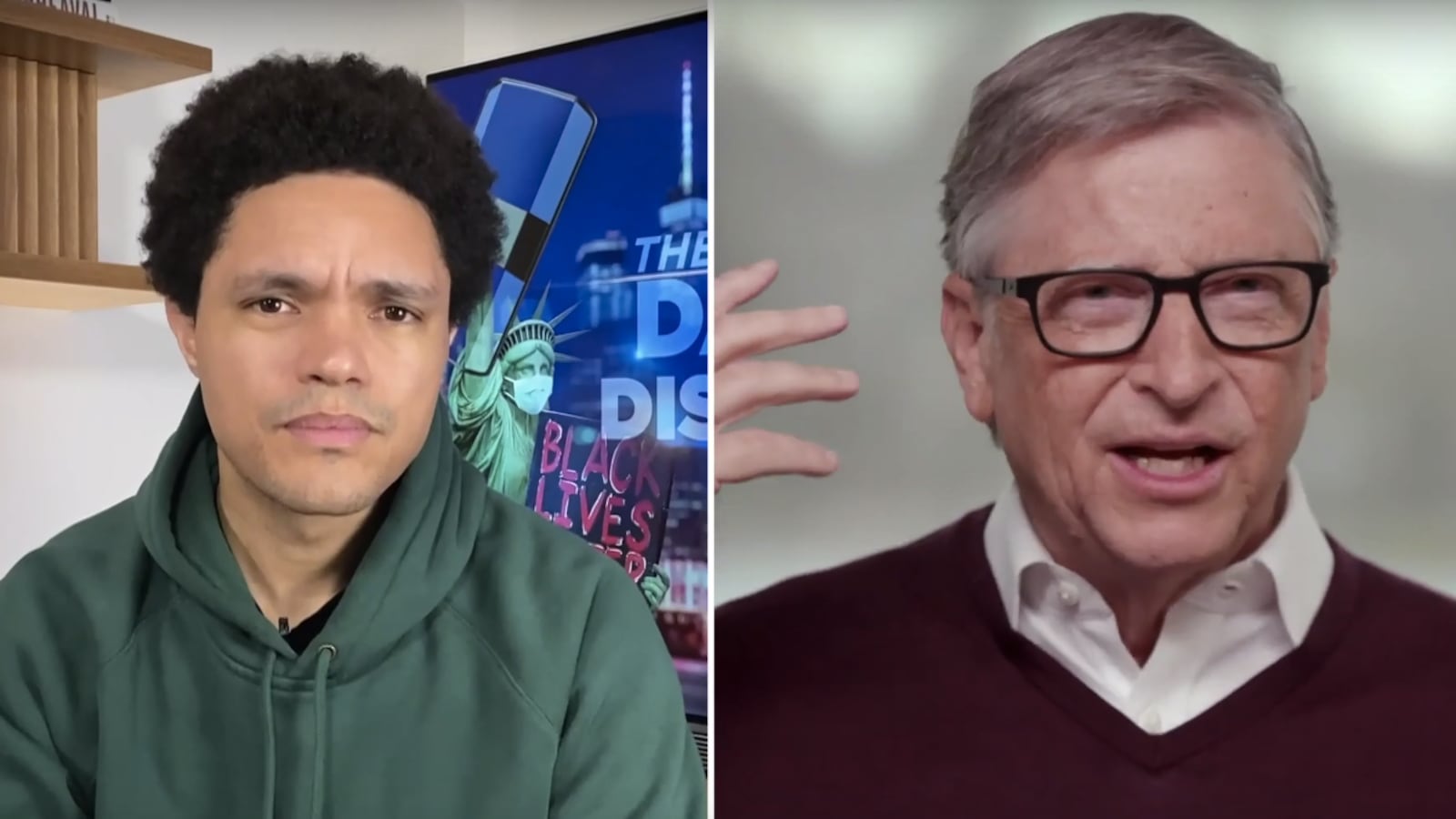“A lot of people accused you of peddling fear and terror, and unfortunately you were correct.”
Yes, exactly seven months ago, Bill Gates made an appearance on The Daily Show in the early months of the pandemic, telling host Trevor Noah that the worst was yet to come. And now, the Microsoft co-founder and billionaire philanthropist returned as cases and deaths around the country are once again spiking—with the U.S. tallying over 250,000 dead from COVID-19.
According to Gates, we’re in for a very rough winter. “With the winter, when we’re colder, the virus multiplies more when we’re indoors more, so that’s not a good thing. And then there’s a certain fatigue—some of the things people have to do, in terms of staying away from friends, that’s tougher,” he explained to Noah.
He added, “For the next six to eight months, the news [will be] mostly bad. After that, the volume of the vaccine will have kicked in, and there’s light at the end of the tunnel.”
Of course, Gates is one of the more qualified people to discuss virus transmission and vaccines, given that his Bill and Melinda Gates Foundation has supported a number of vaccine-distribution programs to help fight everything from tuberculosis and malaria to AIDS. A 2015 talk he gave at a TED Conference, where he warned that the world was not prepared for the next big pandemic, has since gone viral in the wake of the coronavirus’ spread.
Later on in the interview, Noah asked Gates about the bizarre conspiracy theories that (mostly) Trump supporters have cooked up surrounding him and COVID-19—including the batshit-insane theory that Gates is using the virus to implant brain chips in people and control them.
“Usually when you work on infectious disease, like Dr. Fauci and I do, you’re kind of obscure. Nobody talks that much about TB or malaria. So here we have this complete turnaround where vaccines, and are they good for people, are now front and center,” Gates calmly said, before appearing to criticize Facebook and other social media networks that help spread disinformation. “And there’s always been a small group of anti-vaccination people, and we see this with the measles vaccine. They’ve now got a platform, and they’ve joined forces with some political-conspiracy dudes. And it’s so easy to click on, particularly when a simple explanation for this pandemic—that there is somebody evil behind it—is somehow easier than the true biology, which is actually kind of complicated. So we have to make the truth more interesting. We’ve got to label things with the truth.”
“Sadly, the naïveté about how to make social media work well is pretty strong, and that’s coincided with the election and the epidemic,” he continued. “I wish I had the answer but [disinformation’s] out there in big, big numbers—and it just keeps growing.”






